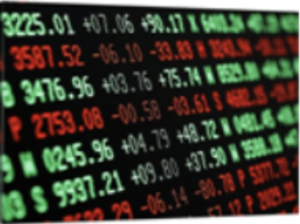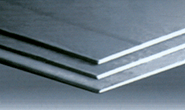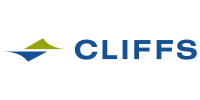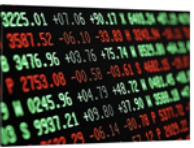SMU Explains: A Brief History of the US Pig Iron Market
The pig iron trade is an important element to the US steel and foundry industry.
The pig iron trade is an important element to the US steel and foundry industry.

Prime scrap prices were unchanged in October month over month, following a large Detroit-area buyer's lead, according to market sources.

US hot-rolled coil (HRC) and offshore product are nearly back even again after domestic prices moved higher for the second straight week.

If the last few years have taught us anything, it is that nothing is certain.
Sheet prices moved upward for the second week in a row despite the ongoing UAW strike and concerns in some corners that momentum from a price hike last month might be fading, market participants said.

The LME aluminum three-month price was broadly unchanged on Friday morning, Oct. 6, and was last seen trading at $2,243 per ton. Due to the Mid-Autumn Festival and National Day celebrations, the SHFE is closed for holidays from Sept. 29 to Oct. 6. According to a report from Bloomberg, leaders from the EU and the […]
A large Detroit-area scrap buyer has settled scrap tags for October, with busheling scrap sideways, a source told SMU.

US hot-rolled coil (HRC) and offshore product are nearing parity again after domestic prices moved higher this week and imports declined again.

While the ongoing United Auto Workers (UAW) strike hasn’t had a significant impact on the scrap market, the strike's expansion to stamping plants could hit supply, sources tell SMU.
Sheet prices rose this week on the heels of a price increase announced by Cleveland-Cliffs last week that was quietly followed by other mills.

US plate prices have been relatively flat this year, especially when compared to sheet products. Case in point; SMU's plate prices stands at $1,455 per ton ($72.75 per cwt) on average, down 7% from a $1,560 per ton peak in April. Our HRC price is at $645 per ton, down 44% from an April peak of $1,160 per ton.
The US scrap market for October is a bit unsettled as the UAW strike against the Big Three automotive companies has expanded and shows scant signs of an imminent settlement.

Nucor Corp. will keep plate prices unchanged with the opening of its November order book.
On Sept. 15, the UAW went on strike at three plants, one of each of the Big 3. On Sept. 22, the UAW expanded its strike to 38 more GM and Stellantis plants. Since Sept. 15, the HRC futures curve has rallied $60-75 in the November – February futures months. The reason why there has been this breakneck rally is because, uh, well, um. I have no idea. I am as shocked by it as perhaps you are, frankly.

The overall steel mill negotiation rate remained level this week vs. two weeks earlier, but plate’s rate fell by 15 percentage points, according to SMU’s most recent survey data.

US hot-rolled coil (HRC) prices were down again vs. offshore hot band this week. Domestic HRC lost more ground relative to imported product with US tags sinking at a faster rate than those overseas.

Cleveland-Cliffs is increasing its sheet tags, setting a new base price for hot-rolled coil, effective immediately, the company said in a press release on Wednesday, Sept. 27.
Hot-rolled coil prices were down again this week, continuing a streak of week-over-week (WoW) declines that began in early/mid-July.

The United Auto Workers (UAW) union has more leverage than the Detroit Three automakers in the current strike that started Sept. 15, according to Jason Schenker, president of Prestige Economics.

After a quiet couple of weeks, the futures market has recently come to life over the last three days, and is starting to show some bullish signals.
Sheet prices slipped again this week on news of the United Auto Workers (UAW) strike and continued caution among some consumers.
The spread between hot-rolled coil (HRC) and galvanized sheet base prices widened throughout the summer as hot rolled prices declined faster than those of galvanized.
The spread between hot-rolled coil (HRC) and prime scrap prices continued to narrow this month, according to Steel Market Update’s most recent pricing data.

US hot-rolled coil (HRC) continues to lose ground against imported hot band. Domestic product remains a better deal than offshore HRC as US tags sink further, according to SMU’s latest foreign vs. domestic price analysis.
Sheet prices fell across the board ahead of what many market participants predict will be a strike by the United Auto Workers (UAW) later this week.

US hot-rolled coil (HRC) is now a better deal than imported hot band, something we haven't seen since early February, according to SMU’s latest foreign vs. domestic price analysis.
Nucor Corp. will lower plate prices by $40 per ton ($2 per cwt) with the opening of its October order book.

Domestic hot-rolled coil (HRC) is now cheaper than imported hot band as US tags have fallen further and at a faster clip than offshore product, according to SMU’s latest foreign vs. domestic price analysis.

Scrap sources had a mixed outlook for US scrap prices for September.
Sheet prices have fallen this week, after a small pause last week when prices saw mixed results. Tags have now been largely trending lower since July.